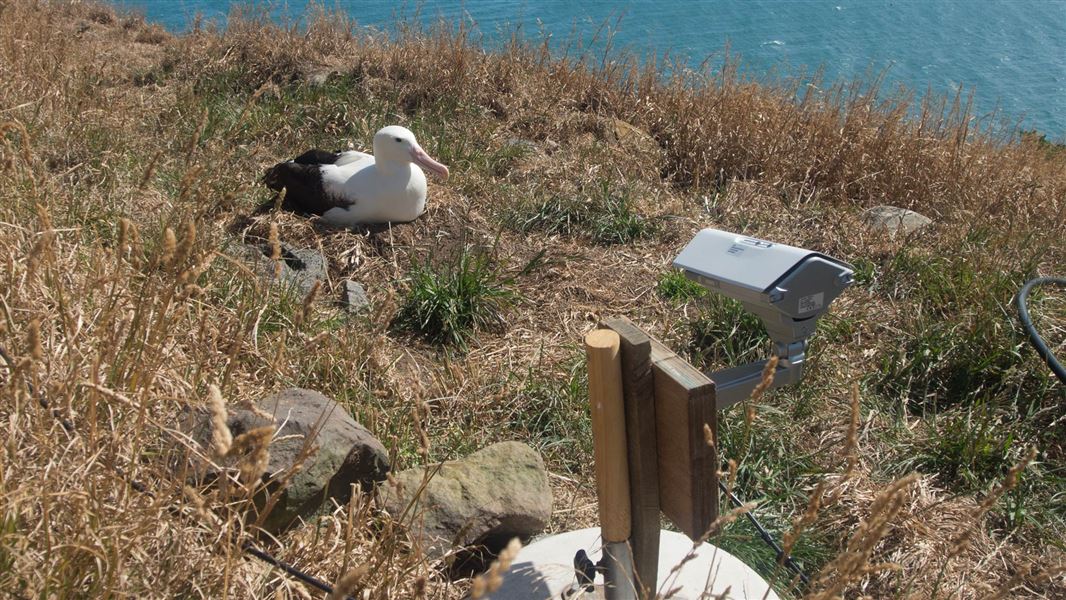Below you can read answers to questions we've been asked in our Royal Cam Community discussion. We've also answered many more of your questions on the pages in our related links.
Do albatross have individual markings?
We believe that they have individual markings, there has been work done on their back markings many years ago. However, due to the size of the population and the fact that we do not always get a clear view of the back, using these markings has not been an option.
Is there a time when the parents are most likely to switch feeding duties?
There isn't any time when the birds are more likely to change over, just keep watching. They do need wind to be able to fly in so calm days are less likely.
What happens if a chick dies in the guard stage?
The parents will usually leave the headland and because they are not feeding a chick through the winter months they are likely to return and try breeding again at the end of the year. A surviving chick means that they need to skip a year to put on enough condition to breed again.
Do male albatross decide where the nest will be, and choose spots where they grew up?
At the start of the breeding season the male defends a territory in which the nest ends up in and this can be within 40m of the nest they grew up in. They tend to choose flat areas of the headland and location will depend on territorial disputes as well. The female does much of the nest building when she is close to laying the egg.
When the grown up chicks return from sea, do they and their parents recognise each other?
We are not aware of how much they recognise each other. But it's likely that they have not seen each other for several years. Regardless of whether a parent recognises a juvenile as a previous chick they will not feed them and they will defend their current nest from them.
Parents find their mates and their chick through visual cues and vocalisations such as skycalling.
Do juveniles pick on chicks that are close to the site they were raised?
Although albatross usually nest not far from where they are raised, the juveniles are quite mobile and will hang out with other juveniles anywhere in the colony during the courtship stage.
